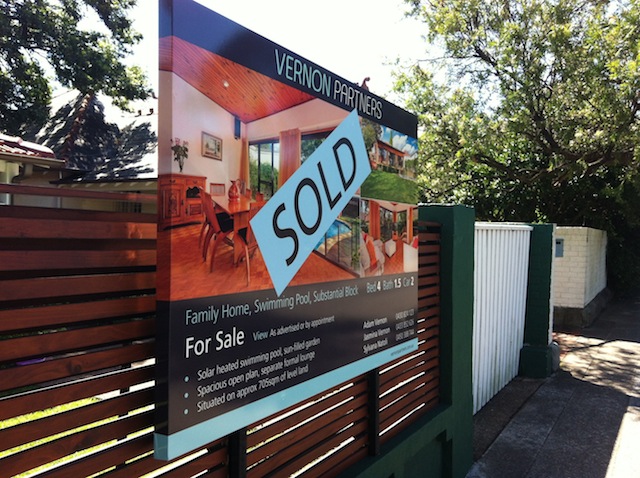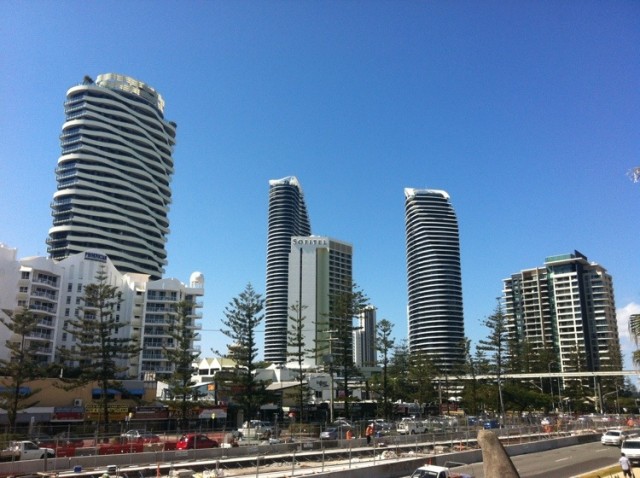One bad schnitzel on Queensland’s Gold Coast illustrates the biggest economic problem facing Australia.
As we approach the 2013 Australian election, it’s notable how the debate – if it can be described as that – hasn’t touched on the biggest issue facing the country, the hollowing out of the nation’s economy.
In the 1980s the Gold Coast was going to be the centre of a Japanese led tourism boom.
That boom petered through a combination of greed and incompetence on the part of Australian tourism and hotel operators, a process being repeated with Chinese tourists twenty years later.
Like the rest of the Australian economy, in the 1990s the Gold Coast looked inwards with a focus on property speculation and construction that kept the workforce employed pouring concrete and fitting out kitchens.
In the meantime, the Gold Coast’s tourist assets were left to rot through under investment. Jupiter’s Casino is a good example of this, a building stranded in the 1980s and in desperate need of a capital injection.
The Gold Coast was not alone in this, a review of Perth’s Rendezvous Grand Hotel — built by Alan Bond in the 1980s — illustrates exactly the same problem at the other end of the country.
A lack of investment plagues all of Australia’s hospitality industry, a dinner at the Bavarian Bier Cafe on the Gold Coast’s Broadbeach* was a disaster as poorly trained staff were overwhelmed by a half full establishment and let down by poor business systems.
That shocking meal — which saw the staff struggle to get out a salad and two beers in over two hours with the greasy, overcooked mains arriving nearly three hours after the diners arrived — is not untypical in Australia.
Soviet style service is fine when beer and a poorly cooked, mostly breadcrumbs, schnitzel costs fifty kopecks, however at modern Australian prices the service, food and cooking should be world’s best.
That high prices rarely translate to superior standards in Australian establishments shows how poorly the nation has adapted to being a high cost nation.
While it’s fashionable to blame the mining industry for the down under manifestation of the Dutch disease, the answer to what has driven Australia’s under investment in tourism, agriculture and manufacturing lies in the cities and suburbs.
On the same day as the disastrous Bier Cafe meal, the Gold Coast media was reporting that relaxed zoning restrictions would allow unrestricted high rise building heights.
While the real estate industry welcomed this, the reality for local property speculators hasn’t been pretty with buyers in the twin tower Gold Coast Hilton development being hit with forty percent losses.
Part of the reason for the poor performance in property speculation is that Gold Coast industry has been hollowed out with local office vacancy rates varying between 27 and 14% percent.
While much of the rest of Australia’s property markets have been spared similar declines to date, the emphasis on real estate speculation over investment in industry has been similar across the nation.
That lack of investment in productive industries, whether in tourism or manufacturing is already hurting Australia, more critically it’s preventing Australian businesses’ from dealing with the transition to being a high cost economy more akin to Switzerland, Japan or Germany than the United States.
One bad schnitzel on the Gold Coast might not tell us much in itself, but the under investment in systems, training and staff is a bad omen for Australia’s economy.
Regardless of who wins Australia’s federal election on Saturday, it’s unlikely the group of pampered apparatchiks occupying the Treasury benches will have any idea of helping business or society transition to the realities of the Twenty-first Century.
*Paul travelled to the Gold Coast and ‘dined’ at the Broadbeach Bavarian Bier Cafe as a guest of Microsoft Australia
Similar posts:

